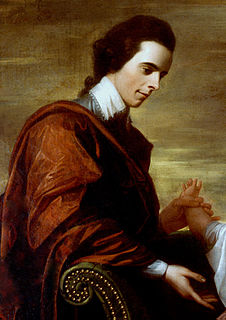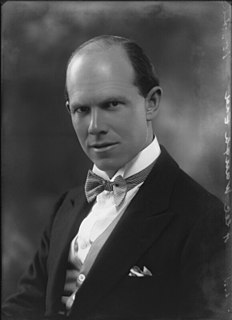A Quote by William Law
Faith is not a notion, but a real strong essential hunger, an attracting or magnetic desire of Christ, which as it proceeds from a seed of the divine nature in us, so it attracts and unites with its like.
Related Quotes
The desire for total happiness and for ultimate freedom lies dormant in everyone. It is in the form of a seed. It is like a seed that contains a tree within it. In the same way, the fulfillment of man's ultimate desire is hidden in his very nature. In its perfectly developed state, it is our nature to be happy, to be free. Our real nature is the only thing that is true, and only perfecting it can bring complete satisfaction.
The priest comes. . not as an obscurantist, but wearing the intelligible vestments of living faith, divine but positive, ministering in Word and Sacrament that which is humanity's hope and salvation, the divine energy in which he lives with Christ in the Father through the Holy Spirit, identified but not accommodated to the world Christ seeks to save.
Electric and magnetic forces. May they live for ever, and never be forgot, if only to remind us that the science of electromagnetics, in spite of the abstract nature of its theory, involving quantities whose nature is entirely unknown at the present, is really and truly founded on the observations of real Newtonian forces, electric and magnetic respectively.
It is never on account of its formal nature as a psychic act that faith is conceived in Scripture to be saving. It is not, strictly speaking, even faith in Christ that saves, but Christ that saves through faith. The saving power resides exclusively, not in the act of faith or the attitude of faith or nature of faith, but in the object of faith.
It is not merely our own desire but the desire of Christ in His Spirit that drives us to grow in love. Those who seldom or never feel in their hearts the desire for the love of God and other men, and who do not thirst for the pure waters of desire which are poured out in us by the strong, living God, are usually those who have drunk from other rivers or have dug for themselves broken cisterns.
There is no figure more common in scripture, and none more beautiful, than that by which Christ is likened unto light. Incomprehensible in its nature, itself the first visible, and that by which all things are seen, light represents to us Christ. Whose generation none can declare, but Who must shine upon us ere we can know aught aright, whether of things Divine or human.
We should not be discouraged or depressed by our shortcomings. No one is without weakness. As part of the divine plan, we are tested to see whether we master weakness or let weakness master us. Proper diagnosis is essential to proper treatment. The Lord gave us this remarkable assurance: "Because thou hast seen thy weakness thou shalt be made strong" (Ether 12:37). But wishing for strength won't make us strong. It takes faith and work to shore up a weakened cord of integrity.
What you see is the bread and the chalice; that is what your own eyes report to you. But what your faith obliges you to accept is that the bread is the body of Christ and the chalice is the blood of Christ. This has been said very briefly, which may perhaps be sufficient for faith; yet faith does not desire instruction





































